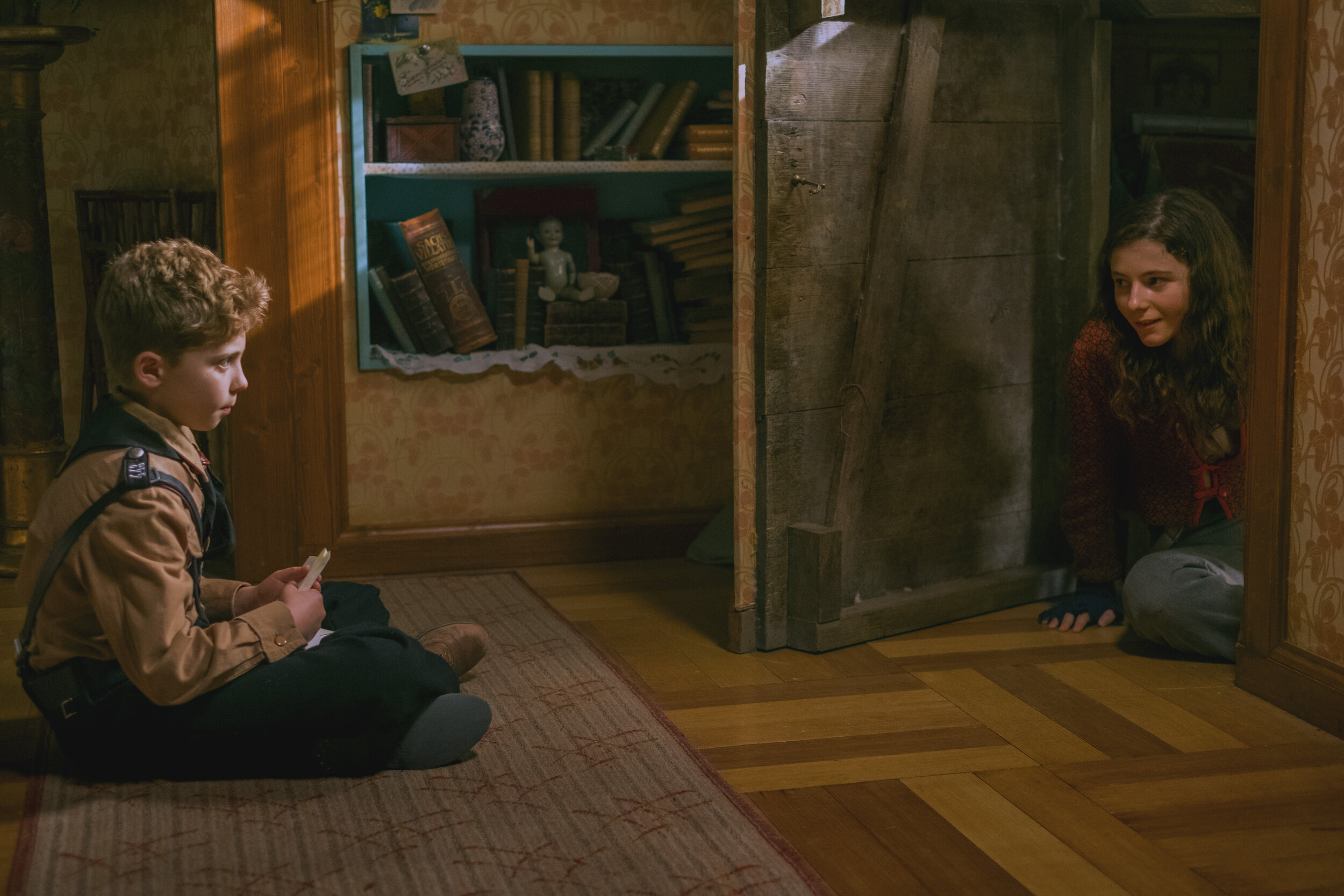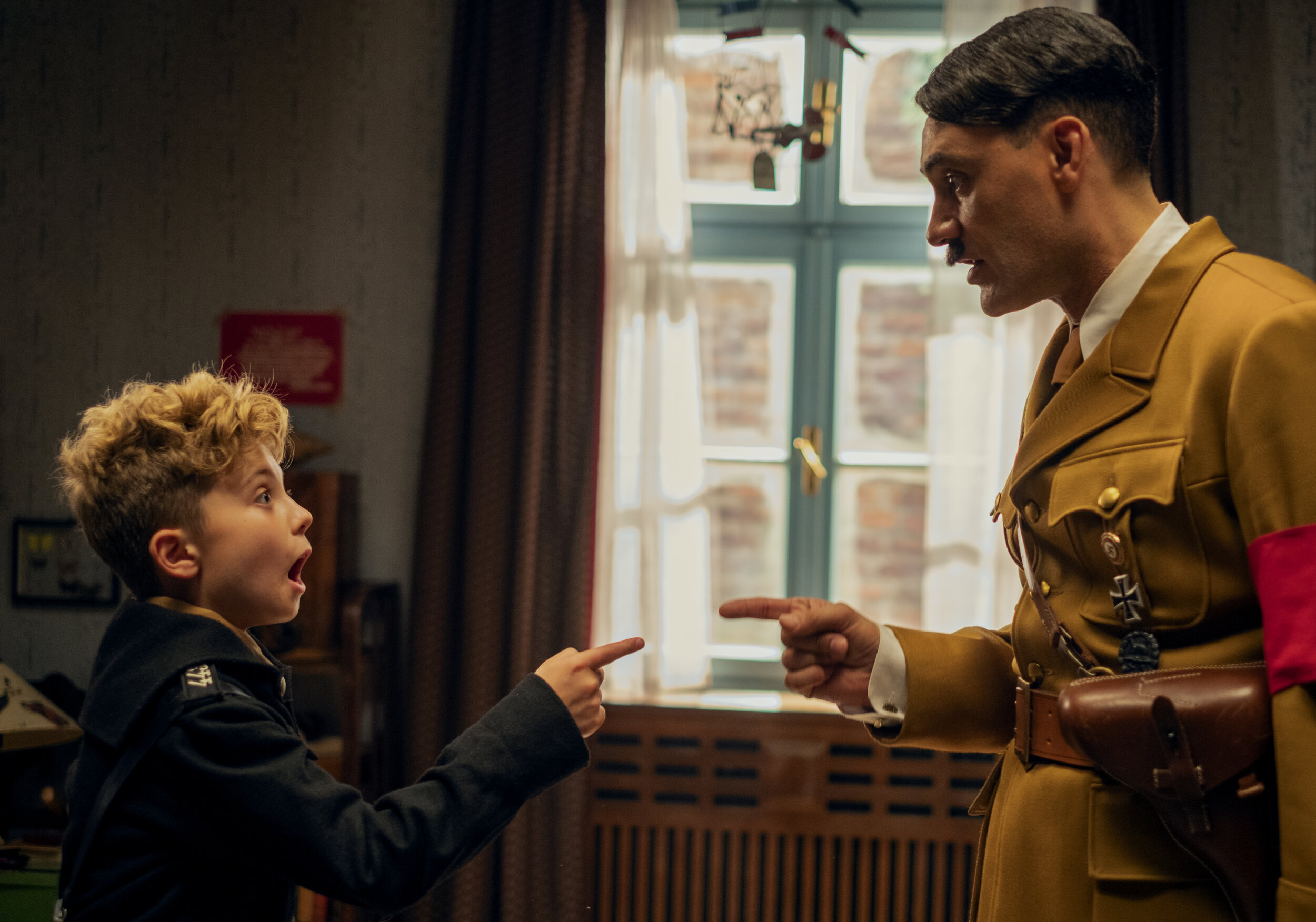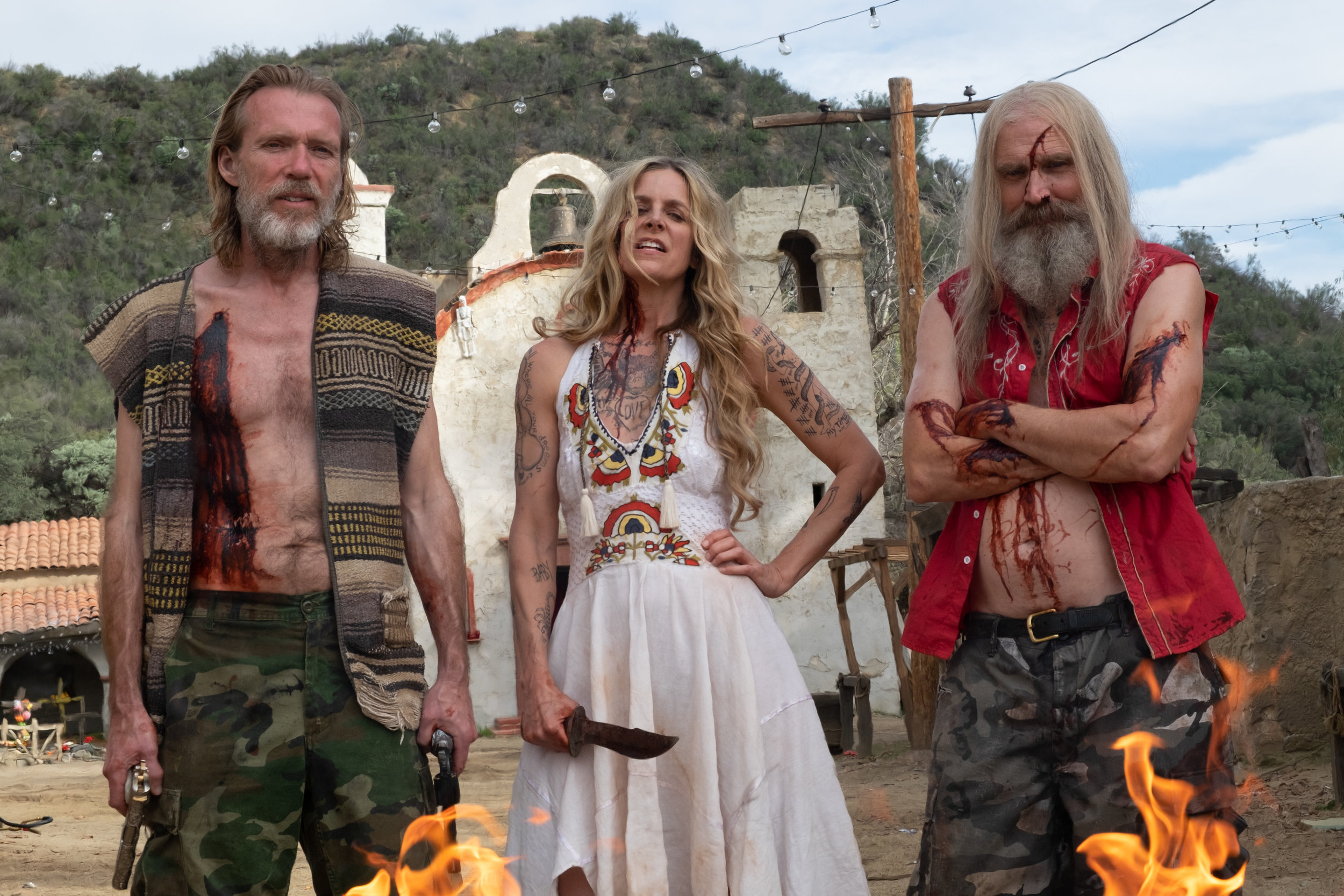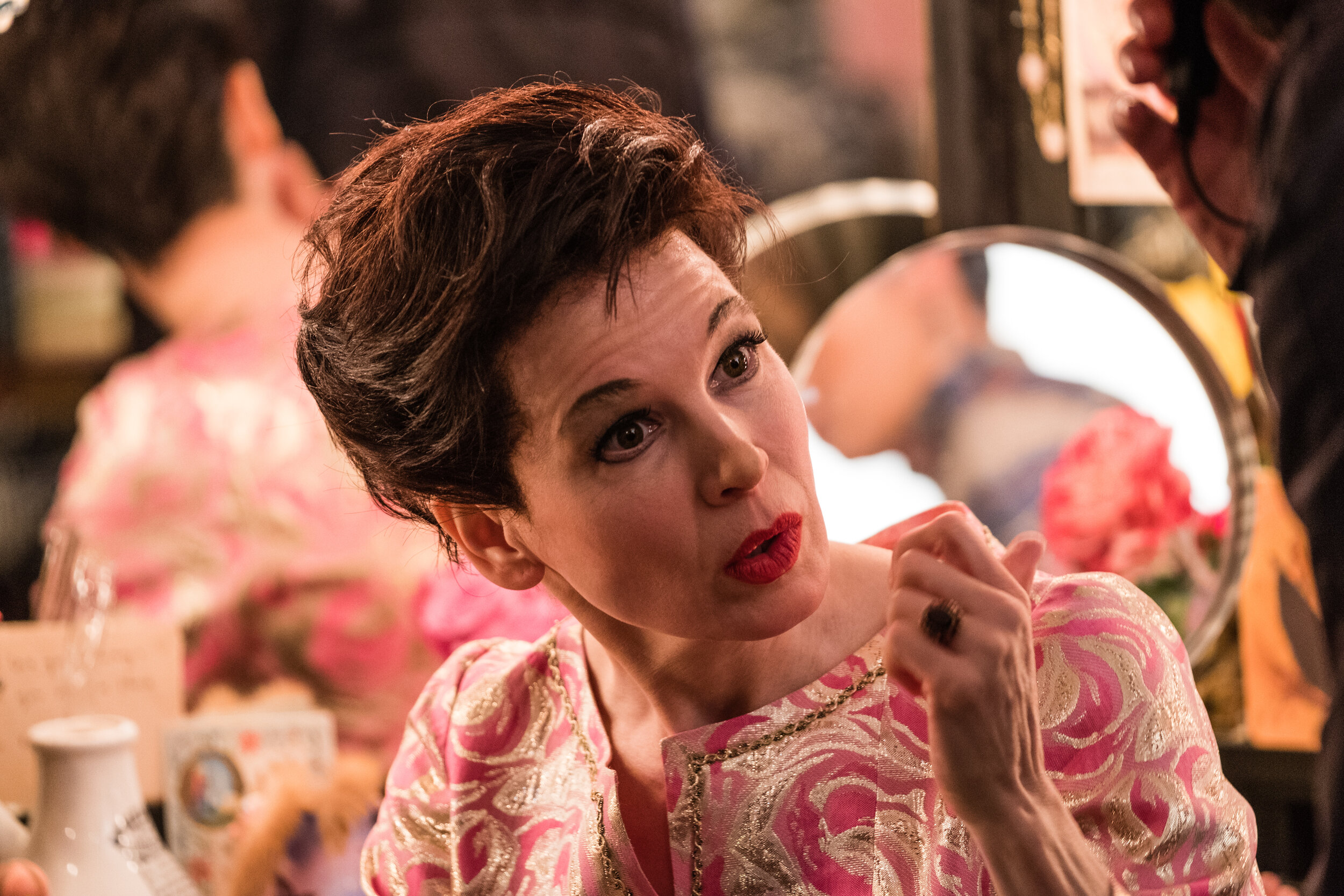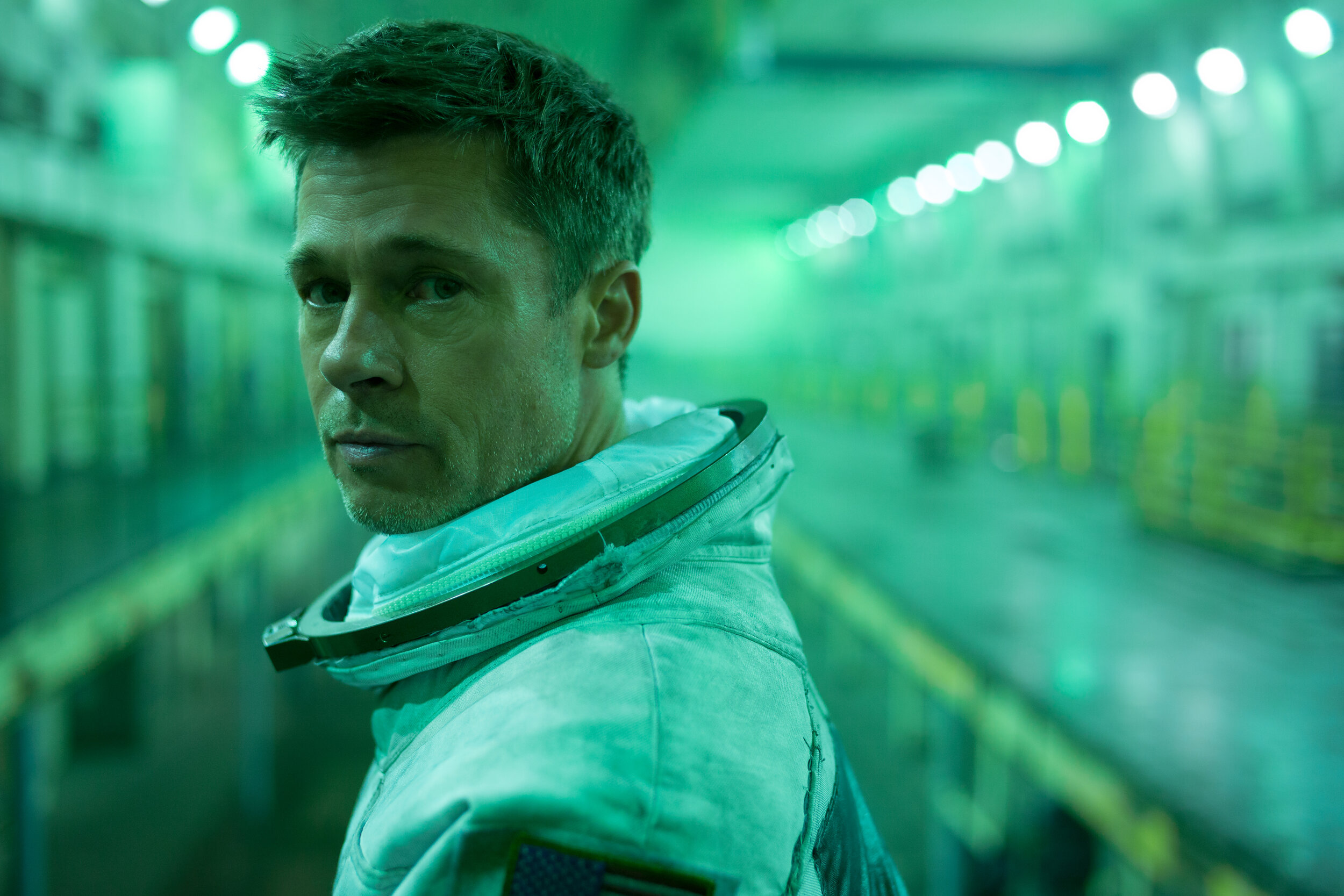Thomasin McKenzie who stars as Elsa in ‘Jojo Rabbit”.
Writer/director/actor Taika Waititi’s new film “Jojo Rabbit” is set in Germany during the last throes of WWII, and Jojo Betzler (Roman Griffin Davis), 10, is a devoted member of the Hitler Youth. He discovers, however, that his mother Rosie (Scarlett Johansson) is hiding a Jewish girl Elsa (Thomasin McKenzie) in their home, which throws his little fanatical mind for a loop.
This film carries all the somber shades of a heavy, difficult and heartfelt drama, but “Jojo Rabbit” is also a flat-out hilarious and dicey physical comedy, which also includes our lead frequently talking to his imaginary friend Adolf Hitler, played by Taika.
“Jojo Rabbit” is no ordinary trip to the movies.
Oct. 23 was not an ordinary day at the Camelview Harkins Theatres in Scottsdale, Ariz. Thomasin McKenzie (“Leave No Trace” (2018)) flew to the Valley, and she spoke at a “Jojo Rabbit” screening/Q&A with me at the aforementioned locale to a warm and welcoming audience. She was also in town on Oct. 24 and sat down and chatted with the Phoenix Film Festival and three other movie outlets for a group interview.
We all enjoyed an enjoyable and insightful discussion, and Thomasin talked about working with her co-stars Roman and Scarlett, finding the right balance with her character and much more!
“Jojo Rabbit” is rated PG-13. It’s currently playing at the Camelview Harkins Theatres, and the Phoenix Film Festival gave Thomasin’s movie 3.5 out of 4 stars.
Q: “Jojo Rabbit” can be described as: a comedy where a kid has Adolf Hitler as an imaginary friend. Did you have any apprehension about taking a role in this film, or did you think that Taika is doing it, so you’re in?
TM: I definitely had a bit of apprehension. The second I read through the audition screens, I talked to my team about it and heard what they had to say. I could tell it was going to be something really special.
When I got the role and was on the set, there was always a vibe that everyone was so excited to share and tell this story that’s been told so many times before, but in such a different and unexpected way. Although we were all so excited, you never know how the audience is going to react, no matter what you’re doing. It could be the safest film on Earth, and people could hate it. No one’s going to like everything. So, there was definitely a bit of apprehension and not knowing how people (would) respond, but despite that, the whole time I could feel that (this movie) was such a special project. I am beyond lucky to be a part of it.
Thomasin McKenzie and Roman Griffin Davis in “Jojo Rabbit”.
Q: Elsa is a strong person, and she put Jojo on his heels. At the same time, the current state of affairs leaves her incredibly vulnerable. What was your process about finding your character and mixing her strength and vulnerabilities?
TM: I did a lot of research and worked with a historian who (filled) in a lot of gaps for me but also told me some really shocking things that (Jewish people) were confronting at that time. (It helped) to know that history and at the same time, being aware of how terrified Elsa must have been, but I also wanted to portray her as a strong person.
It was a constant balance. There were times, when she was feeling very vulnerable, but she put on a strong face. There was a lot going on in her mind, (and for me), being aware of that past and at the same time, still wanting to show that Elsa wasn’t just a victim.
She was so much more, and that’s where the balance came.
Q: At one point, the Nazis come knocking at Jojo’s house, and the scene was very intense, but there were also some moments of comedy too. Did you feel that mix of emotions?
TM: I definitely felt mixed emotions. It was a bit of a rollercoaster. Elsa started in that scene with a lot of confidence, and saying, “I’m here. I’m standing, and you guys don’t own me.” By the end of the scene, it’s the first time, I think, that we see Elsa really breakdown a bit and show her fear, which she’s been trying so hard to hide.
Q: Elsa is a victim, but she refuses to let it be her sole, defining characteristic. Was that something that you considered when taking this role, by playing this multifaceted person who just wasn’t one-dimensional?
TM: Yes, yes. Definitely. (Now,) I was not offered this role straight off the bat. It was a normal audition process. They didn’t (just) send me the script, and I (thought), “Do I want to be part of this or not?”
The whole time I was saying, “I really want to be a part of this! Please cast me!”
In a lot of WWII and Holocaust films, the Anne Frank-like characters are (more often) portrayed on the victim-side. Of course, they were victims and going through disgusting (years) that no human being on Earth should have to experience, but I was also interested in Elsa having some kind of power in a way, as much power as she could possibly have in that situation.
Elsa is a very, very smart girl, and she saw an opportunity with Jojo. She saw how manipulated he (was), and his idea of what she was: this monster in the attic. She recognized that and used it to her advantage. She got the upper hand in that way. She was able to control him. Anyone in that situation - holding so much anger and confusion mixed with fear - would want to take back some kind of control.
So, Elsa is such an interesting character, because she has so many things going on inside her mind, and (at the same time), she’s a really young girl. She has no idea why all of this is happening to her.
Thomasin McKenzie and film critic, Jeff Mitchell, at a screening for the film “Jojo Rabbit” in Scottsdale, Arizona at Harkins Camelview.
Q: “Jojo Rabbit” is Roman’s first movie. Were you like his big sister on-set, and did you help coach him?
TM: Oh, he definitely was my little brother, and I felt like his big sister. He did not need coaching from me at all. I had so much admiration for him throughout the whole experience, because he was working more days that I was, and he handled a heavier role with so much professionalism and emotional maturity.
I definitely did not feel like I needed to give any advice. I was kind of taking advice from him.
Q: Most of your scenes were with Roman, but you have a couple wonderful moments with Scarlett Johansson that are so sweet and tender. How did you approach those scenes?
TM: Scarlett is someone who I’ve looked up to for a very long time. She’s such a strong person, so I was bit star-struck, but when we were actually filming the scenes, she was so lovely. I didn’t feel like she was some massive actress, who has an incredible career. She’s just a human being, and we were doing it together, and we had a really lovely time.
Also, Elsa and Rosie are the only two sane people in the film, (so those) were the calmest scenes (that) I did. They were very quiet and gentle.
Jeff – a member of the Phoenix Critics Circle – has penned film reviews since 2008, graduated from ASU’s Walter Cronkite School of Journalism and is a certified Rotten Tomatoes critic. Follow Jeff and the Phoenix Film Festival on Twitter @MitchFilmCritic and @PhoenixFilmFest, respectively.


